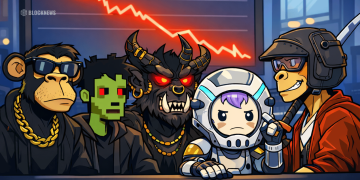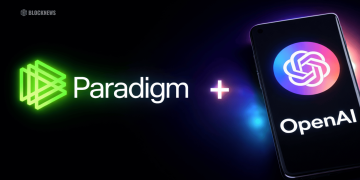- Cybersecurity firms warn blockchain networks of possible hacks.
- Dogecoin and Litecoin are quick to clean up patches in the system.
- Halborn warns of possible Reserve Procedure Call hacks.
Cybersecurity firm Halborn in a blog post warned of vulnerabilities that it dubbed “Rab13s”. Halborn also said they had already worked towards fixing the vulnerability with other blockchains like Dogecoin, Litecoin, and Zcash.
Halborn announced that at least 280 blockchain networks are at risk of exploitation that could drag the crypto space down a black hole and put at least $25 billion worth of cryptocurrency in danger.
The cybersecurity firm said they had been hired around this time last year to conduct a security analysis of Dogecoin’s codebase and found problematic and exploitable vulnerabilities that could have endangered the blockchain space.
Halborn also figured out while reviewing Dogecoin’s codebase that the vulnerabilities it found in it also affected 280 other networks in the blockchain space, which could lead to the loss of billions of dollars worth of cryptocurrencies.
The security firm outlined three vulnerabilities that they deemed the most critical and had high possibilities for hackers to send malicious messages to individual nodes that could lead to a total system shutdown.
Halborn also added that over time, the malicious messages could expose the blockchains to a 51% attack where a hacker could have access to controlling the majority of the network’s mining hash rate or their staked tokens to enable them to create a new version of the blockchain or to take it offline.
Halborn also found other zero-day vulnerabilities that would enable potential attackers to crash blockchain nodes by sending out Remote Procedure Call (RPC) requests. This protocol would allow a program to communicate and request a service from another protocol.
However, they added that the likelihood of Reserve Procedure Call hacks is as low as it would require valid credentials to proceed with the attack. In addition, the difference in codebase between the networks would make it difficult for all vulnerabilities to be exploitable on all the networks. Still, it would work for at least one exposure on each network.
Halborn said that it would refrain from releasing any more information on the technical details of the possible attacks due to the seriousness of the problem and also added that it had contacted all the affected networks to inform them about the potential danger and also helped in providing a solution on how to patch up the vulnerabilities.
Dogecoin, Zcash, and Litecoin have already fixed their vulnerabilities, but with the number of networks that the cybersecurity firm mentioned, hundreds are still exposed to the exposure of exploits.
Conclusion
Blockchain networks are not the only ones that have been at the mercy of vulnerabilities in their system. Just recently, OpenSea had to quickly patch up a vulnerability in its system after a cybersecurity expert pointed it out and the danger surrounding it.
OpenSea was quick to respond to the alert and fixed up the patch. If the affected networks do the same, it would be suitable for all involved.














